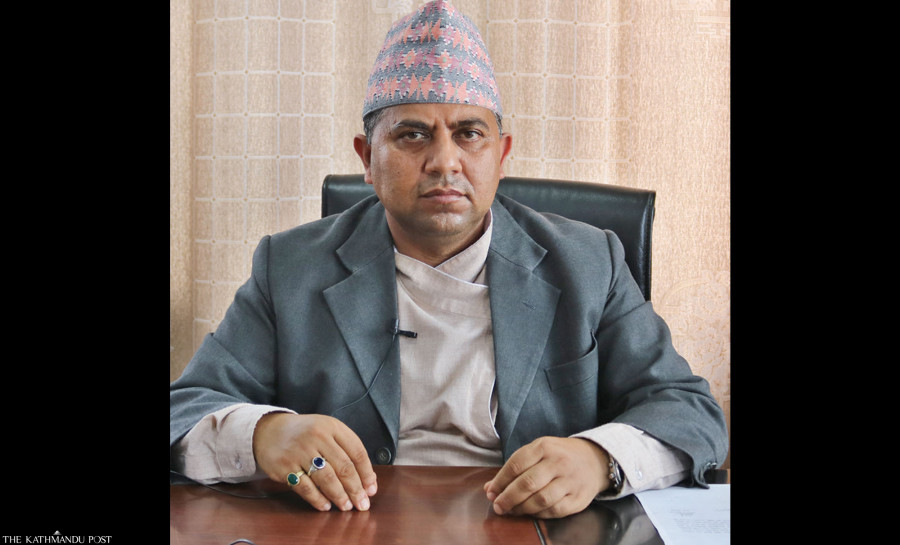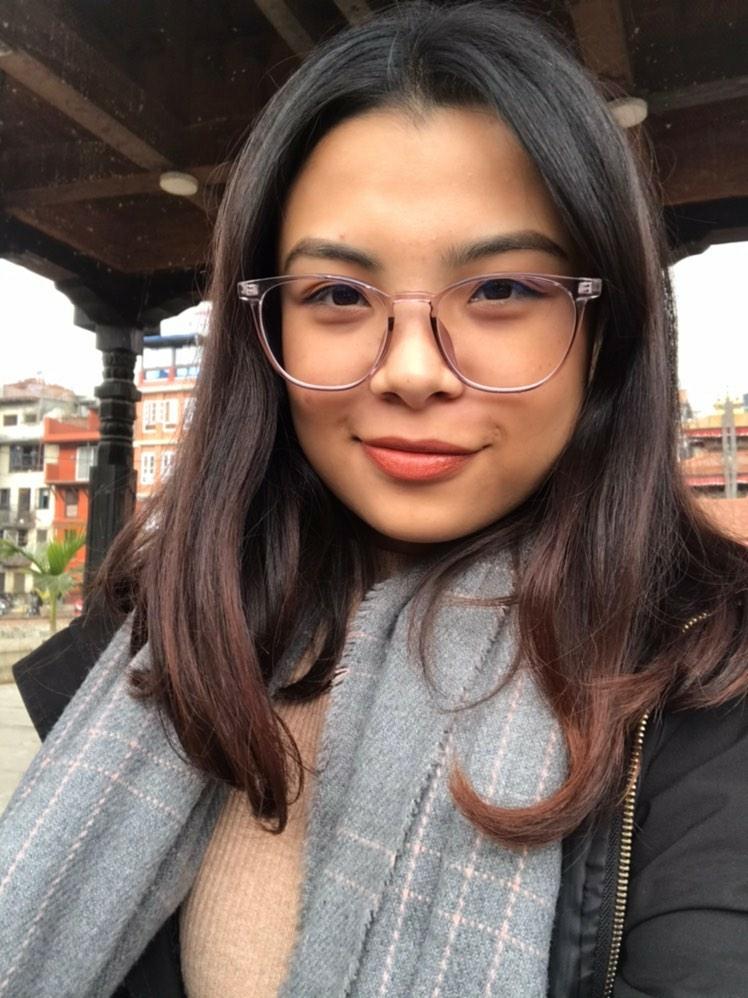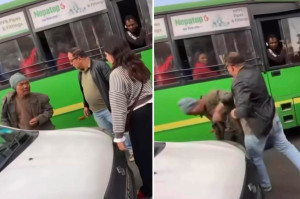Kathmandu
‘The situation can get out of hand anytime soon as cases rise’
Kathmandu district chief Kali Prasad Parajuli on Covid-19 situation and measures to control the virus spread.
Anup Ojha & Drishna Sthapit
Kali Prasad Parajuli has been serving as the chief district officer of Kathmandu for the past eight months. He replaced former chief district officer Janak Raj Dhakal, who oversaw the first wave of the coronavirus pandemic when Kathmandu was a hotspot of the disease. Before being appointed as the chief district officer of Kathmandu, Parajuli worked as a joint secretary at the Disaster Management Division and secretary at the Commission for Investigation of Abuse of Authority, the anti-corruption agency. Earlier he served as chief district officer in six different districts —Dhankuta, Taplejung, Dolakha, Dhanusha, Udayapur and Bajhang.
Parajuli, along with the chief district officers of Lalitpur and Bhaktapur, played a significant role in imposing prohibitory orders in the Valley from April 29 during the second wave of the pandemic. But there has been widespread criticism for the poor implementation of the prohibitory orders.
The Post’s Anup Ojha and Drishna Sthapit caught up with Parajuli and inquired about the current Covid-19 situation and new plans to stem the spread of the virus.
The interview has been condensed for clarity.
Covid-19 cases have been rising of late. What is your assessment of the situation and what are the plans, as there are concerns about a third wave?
When Covid-19 second wave hit the country, the situation was uncontrollable. We imposed prohibitory orders in Kathmandu from April 29. We restricted all sectors such as movement of private and public vehicles to public movement and all businesses.
The strict prohibitory orders were in place when the pandemic was at its peak but we allowed grocery and daily essential shops to open. Then the cases started coming down gradually. We closely observed the pressure at hospitals, availability of oxygen cylinders and dead body management at Pashupati Aryaghat. When the transmission rate and death rate came down with higher recovery rate, we gradually eased the restrictions.
But except for night businesses and places that remain crowded, almost everything has reopened. But again in the past one week, Covid-19 infections have increased. We had eased the prohibitory orders with certain conditions such as people should wear masks, avoid crowding and follow the health protocols.
Do you think that the orders have been implemented well?
No, they haven’t. What I have realised is that health protocols have not been followed well. For example in places where the vaccination drive is going on or in public buses, people do not wear masks, and it’s rare to see people maintaining social distance. If this continues, cases will surely go up.
Has your office come up with any plans recently to control this trend?
Yes, from tomorrow or the day after we are going to make inspection rapid and we will impose fines on people who do not wear masks or maintain social distance in public places. Everyday we deploy police teams who use mikes to inform the public about the health safety protocols and the prohibitory orders but this has not been adequate.
Apart from the police administration, local representatives and all stakeholders should work with a holistic approach to control the spread of infections. For example, local representatives have a significant role to play in sensitising the public about the virus; bus operators should not allow passengers without face masks in their buses; shop owners should wear masks and shouldn’t let in people who do not follow basic health protocols. But that is not happening here so the situation can get out of hand anytime soon and we might have to reintroduce complete restrictions.
Even though some restrictions are in place in some areas, it does not look like they have been properly implemented. Restaurants are openly operating dine-in services. Public vehicles are crowded and people are not following basic safety protocols. How do you look at these challenges?
Just this morning, I had a meeting with security agencies where we discussed making inspections more effective. As they say you can take the horse to the water but can’t make him drink, police alone can’t do much until the public cooperates considering the gravity of the situation. So we can’t get on top of the problem until the ordinary people, civil society, volunteers and elected representatives work together. It’s almost impossible to control the public through the use of force.
In the past, questions were raised about a lack of coordination between district administration offices and local governments. It is said that there was no coordination between the Kathmandu district administration and Kathmandu Metropolitan City. Is it true?
We have good coordination. We have been running the vaccination programme in coordination with the local governments. People are being vaccinated against Covid at their ward offices. I remain in constant contact with local officials including the Kathmandu mayor and ward representatives. We worked together to address the shortage of oxygen and hospital beds when cases had peaked in May and we are still working together.
Can you explain to us how you decide on enforcing prohibitory orders? There have been complaints that the chief district officers enforce curbs on a whim rather than on the basis of facts and evidence and inspection is weak.
We have been inspecting the market day and night. We have not allowed night business and closed shops that remain open beyond their designated times. But we have seen some political marches and demonstrations being organised in violation of the prohibitory orders and we are trying to discourage such activities.
At present we have a double challenge—one is we need to continue the prohibitory orders to contain the virus surge and at the same time we need to allow people to run their livelihoods. For example, there are daily wage workers who need to work every day to feed their families. But if the situation gets serious like in the past when we saw oxygen and hospital bed shortages then we will have to impose strict restrictions.
A meeting of the Covid-19 Crisis Management Centre last week discussed imposing a smart lockdown if needed. What is a “smart lockdown”?
‘Smart lockdown’ means closing sectors selectively depending upon the severity of Covid-19 spread in each sector. The existing prohibitory orders will remain in effect until August 4 (Wednesday). Before these orders expire, we will sit with the Covid-19 Crisis Management Centre again and decide what to do next.




 9.6°C Kathmandu
9.6°C Kathmandu.jpg)












